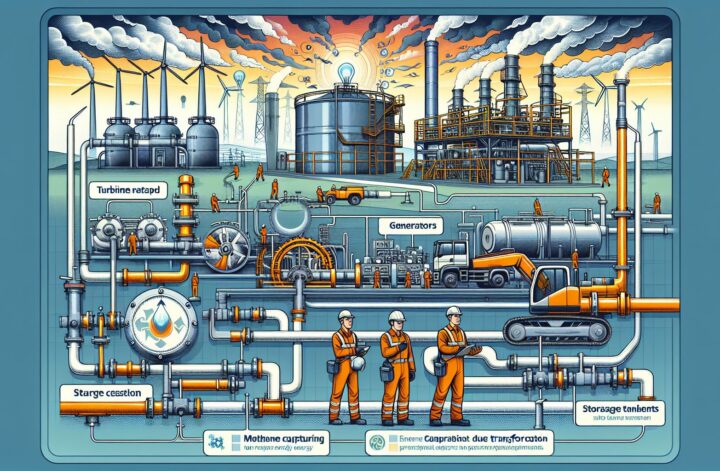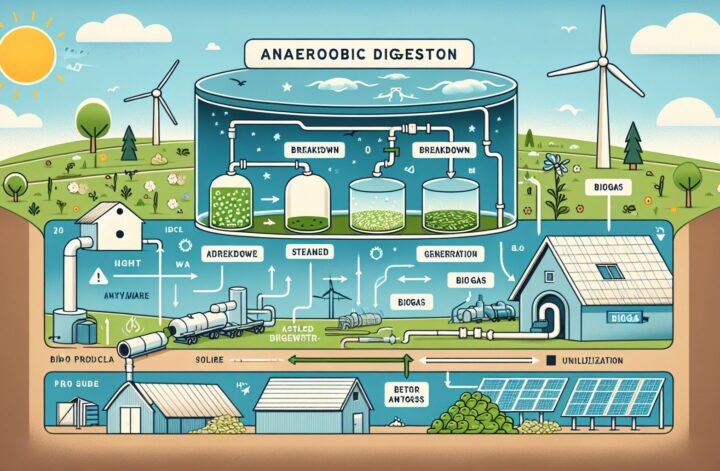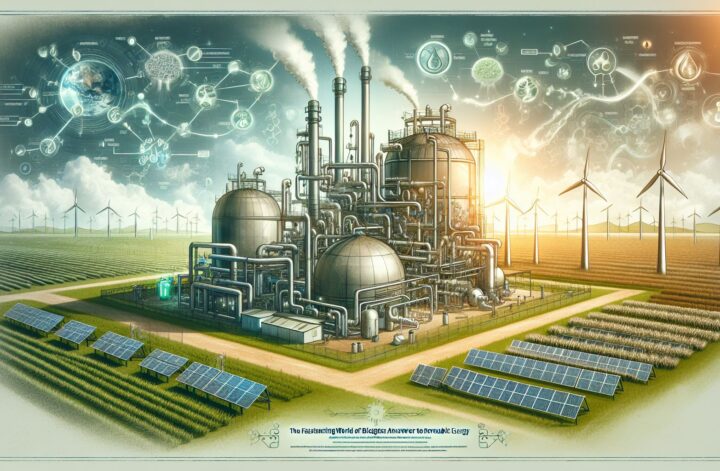Throughout the years, the human race has achieved many feats, driven technological advancements, and created marvels in a successful bid to improve the quality of life. In this relentless race towards progress, however, we have also created an accumulating burden – waste. With the problem of waste disposal becoming increasingly pressing, new solutions have been sought after, with the most promising being biogas production. This article explores the process of biogas production, its advantages, and the challenges faced in this field.
What is Biogas?
Biogas is a type of biofuel that is naturally produced from the decomposition of organic waste. Anything that was once living (be it plant-based or animal-based) counts as organic waste, and the bacteria responsible for its composting are the chief components in the creation of biogas.
Origin of Biogas – The Anaerobic Digestion Process
Anaerobic digestion, a process driven by bacteria, is at the heart of biogas production. The process occurs when organic waste is put in a closed tank without any presence of oxygen, hence the term “anaerobic.”
The breakdown of organic matter occurs in four stages:
-
Hydrolysis: The bacteria responsible for hydrolysis break down complex organic materials into simpler ones, such as sugar and amino acids.
-
Acidogenesis: In the acidogenesis phase, Acidogenic bacteria convert these simpler compounds into volatile fatty acids, alcohols, hydrogen, and carbon dioxide.
-
Acetogenesis: Acetogenic bacteria then convert these fatty acids into hydrogen, carbon dioxide, and acetate.
-
Methanogenesis: In the final stage, methanogenic bacteria transform these resultant products into biogas – a mixture mainly containing methane and carbon dioxide.
The Benefits of Biogas Production
The production of biogas has a wide range of benefits, with some being as follows:
-
Waste Management: Biogas production helps manage organic waste, reducing the burden on landfills and reducing the emissions that take place during waste decomposition.
-
Renewable Energy: Biogas is a reliable renewable energy source. Its production does not depend on weather conditions, unlike solar or wind energy.
-
Reducing Greenhouse Gas Emissions: Biogas puts methane, a potent greenhouse gas, to good use, rather than releasing it into the environment. This reduces the carbon footprint and helps mitigate climate change.
-
Economic Benefit: While starting a biogas plant does require investment, the ongoing benefits of low-cost energy generation and waste management make it cost-effective in the long run.
Challenges in Biogas Production
Despite the numerous benefits associated with biogas production, there remain challenges that need to be addressed for broader implementation. They include:
-
Cost of Setting up a Biogas Plant: The initial investment required to set up a biogas plant can be substantial. This can be a limiting factor for many entities who might not have the necessary capital available.
-
Technological Expertise: The process of creating biogas efficiently requires sophisticated technology and expertise. Lack of knowledge can be a hurdle in adopting this form of energy production.
-
Maintaining Optimal Digestion Conditions: Anaerobic digestion is a fragile process, which can be affected by numerous factors such as pH, temperature, and retention time of the waste. Ensuring these conditions are optimal is critical to maintaining the efficiency of biogas production.
-
Inhibition of the Anaerobic Digestion Process: Certain substances, such as ammonia or sulphides, can be toxic to the bacteria involved in the anaerobic digestion process. This can inhibit the production of biogas.
Conclusion
Biogas production presents an inexhaustible opportunity for sustainable waste management and energy production. While challenges to broad adoption exist, they are not insurmountable. With focused governmental support and ongoing technological advances, biogas offers a promising solution for a greener, more sustainable future.
In the end, our goal should be to make every bit count, be it energy or waste. Biogas production brings us closer to achieving this objective by converting the unattended heap of waste into valuable energy, subsequently paving the way for a circular, sustainable economy.




